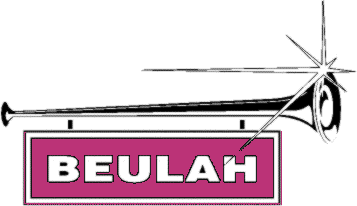Many music lovers miss the sound from vinyl pressings.
Many others have yet to discover how pleasant the sound can be.
Most of our albums are mastered from vinyl LP pressings and earlier
recordings (before 1953) from 78 rpm discs. It is our ability to
recreate, in the digital age, the sound from the disc era that many of
our customers find most enjoyable.
Unlike modern digital recordings tracks in our
albums do contain some distortion, and the occasional surface noises,
but for many listeners these "defects" are soon forgotten.
What the Critics Say
Hailed by Alec Robertson in 1954 as ‘one of
the best choral recordings’. Tempora mutantur et nos ...
"I’m not given to hyperbole but I’m happy to assert
that the two greatest Berlioz interpreters were Sir
Thomas Beecham and Sir Colin Davis. I’m pleased that much of Sir
Colin’s
recorded Berlioz remains available on various labels but the Beecham
Berlioz
legacy is a little thin these days, apart from the unbeatable Symphonie
Fantastique (Warner/EMI 0151822). That CD also includes the Trojan
March
from Les Troyens but that’s the only item duplicated by a new Beulah
release:
Beecham conducts Berlioz, on which the main item is the Te Deum,
recorded in 1953 with Alexander Young (tenor). London Philharmonic
Choir, Dulwich Boys’ Choir and Denis Vaughn (organ) with his own Royal
Philharmonic Orchestra [45:46]. There are not too many available
versions – the Philips/Davis is download only or entombed in a large
box set – so the Beecham reissue is very welcome. Don’t expect too much
for December 1953 sound in a work which makes great demands on the
engineers, but the transfer sounds much better than I remember on LP or
the ‘electronic stereo’ Sony reissue and the performance is classic."
Read Brian Wilson's full review at Music
Web International
"There are several available recordings of Sir
Thomas Beecham’s Tchaikovsky, but not, it seems of Symphony No.2 in c
minor (‘Little Russian’), Op.17, recorded in 1953 with his Royal
Philharmonic Orchestra."
"It’s a sensitive, even restrained, performance and
well worth hearing although there are far more recordings now (around
90) than when the recording was made and hailed as something a rarity. "
"The symphony is preceded by the Nutcracker Suite, Op.71a, recorded
in 1954, and the programme is rounded off with Capriccio Italien
recorded in 1949. In all the music Beecham works his usual magic and
the recordings have transferred well, all sounding good for their age –
the symphony much better than I remember it from the Philips GBL
reissue and the Nutcracker
very good indeed considering its age. Even if you have this ethereal
version of the Nutcracker
music as the coupling for Beecham’s recording of Symphony No.4, the new
release is well worth having."
Brian Wilson at MUSICWEB
INTERNATIONAL where you can read the full review
"If you want to hear how Holst thought his music
should sound, a Beulah release of his own 78 recordings should prove
enlightening..
" I’m not always convinced that composers’ 78
recordings of their own music accurately represent their intentions:
sometimes tempi seem to be determined by the length of 78 sides, but
Holst’s fast Mars seems not to have been a case in point: at 6:08 it’s
within the compass of two 4-minute sides."
Brian Wilson at MUSICWEB
INTERNATIONAL where you can read the full review
